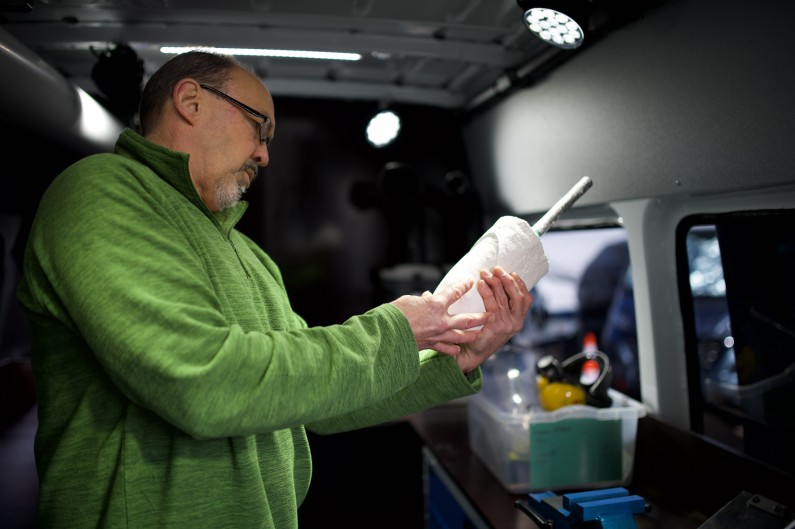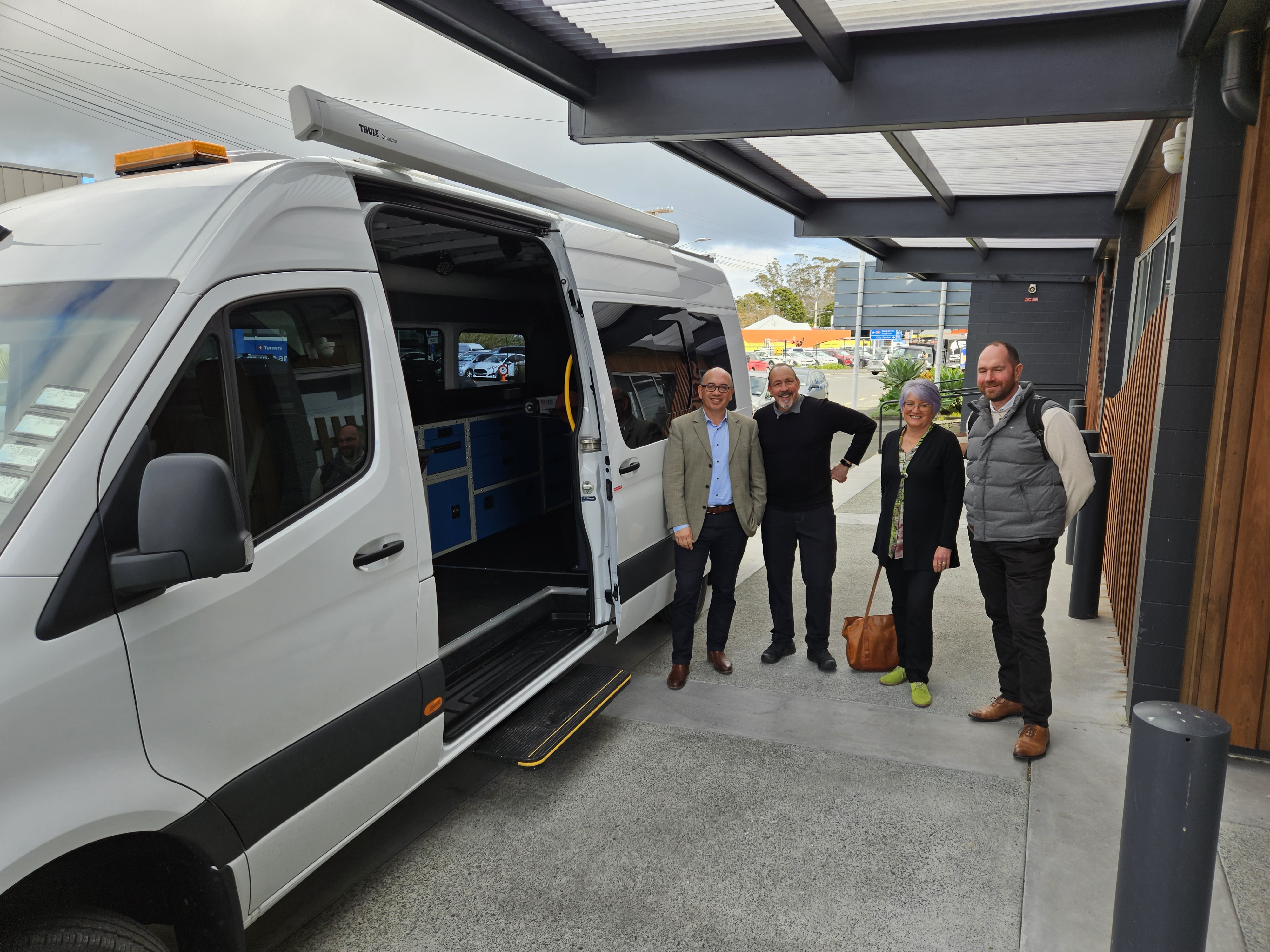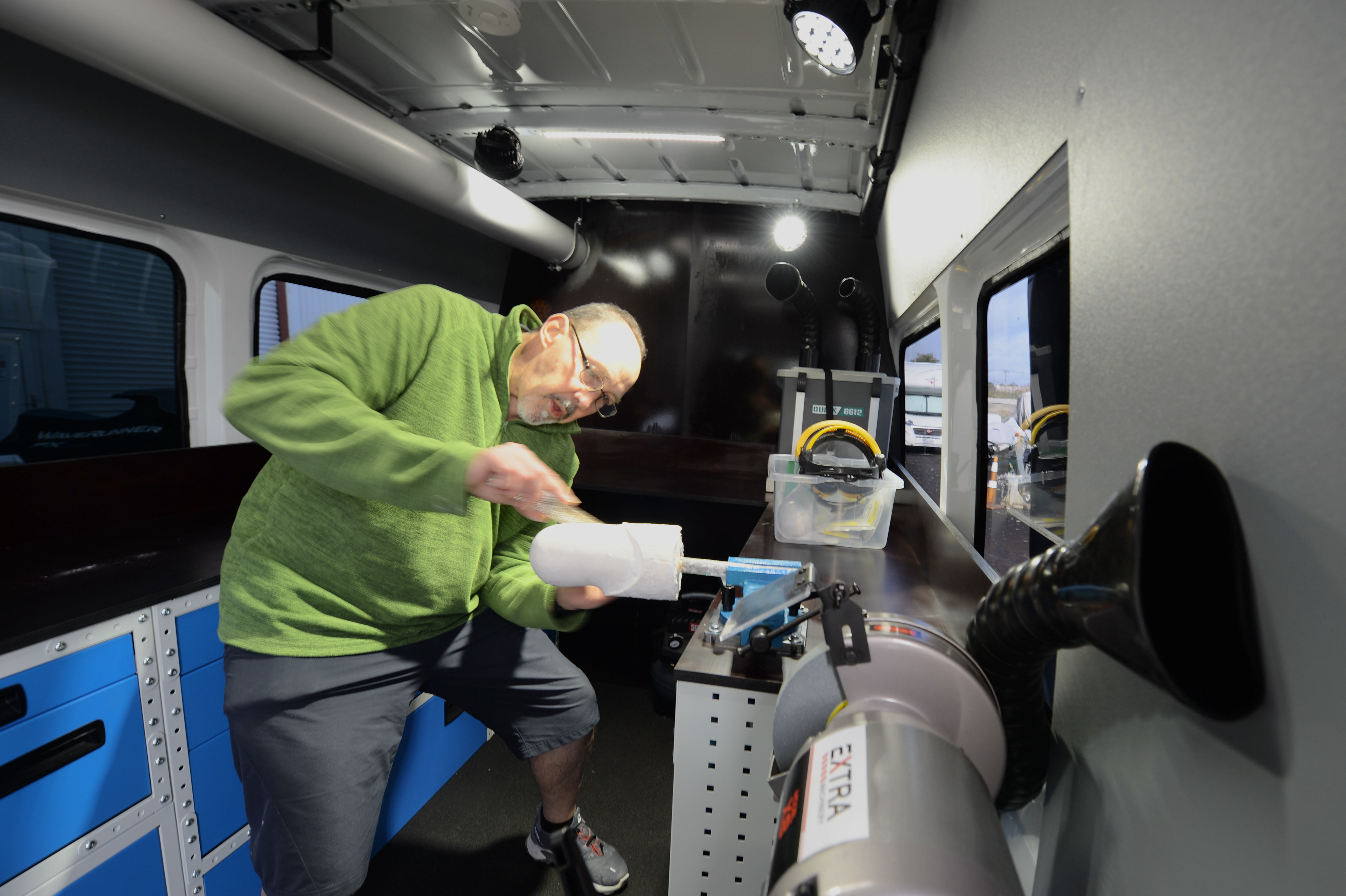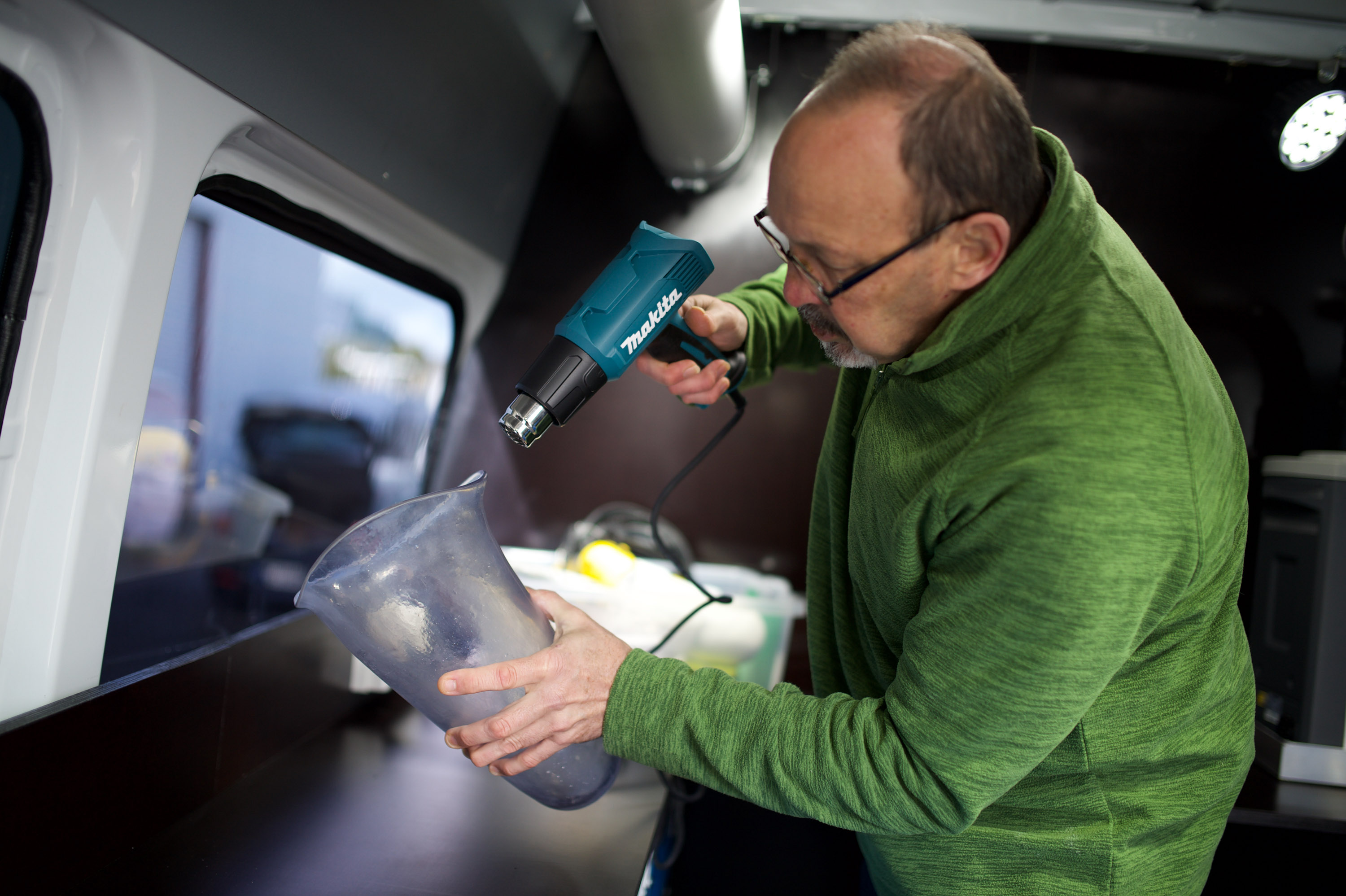Mobile Workshop will raise outcomes for Northland Patients

Northern Region’s mobile workshop will soon be heading to Northland where it is expected to have a major positive impact on patients – especially for those who find it difficult to access our service.
Whangārei Hospital is the only place in Northland where Peke Waihanga has access to workshop facilities during regional clinics although clinics are also held in Kawakawa and Kaitaia. This means that currently, staff are very limited in what they can do for Northland patients. Often, patients have to wait for adjustments or repairs or travel to Auckland. Clinical Lead Paul Bargh said this situation was unsatisfactory in a region with a high Māori population, low health outcomes and where many people live remotely with poor access to services.

Photo by Ken Te Tau. Pictured from right to left: Geoff Milner (CEO – Ngāti Hine Health Trust), Paul Bargh (Clinical Lead Prosthetics), Stephanie Shennan (Northern Regional Manager), Sean Gray (CEO).
Peke Waihanga recognised it should respond to the need in Northland and had explored the possibility of setting up a centre in Whangārei. Finances and lack of suitable space meant a different option was required and the mobile workshop project was born.
Paul says the mobile workshop means prosthetists will be able to make direct sockets, cut them out, trim them and fit them as well as do basic hand laminations. It will increase the range and number of adjustments and repairs prosthetists can make on-site while the patient is still there and he is expecting this to have major benefits on patient outcomes.

Photo by Mahdi Hussainmiya. Pictured: Paul Bargh (Clinical Lead Prosthetics).
CEO Sean Gray says he is “genuinely excited about how this mobile workshop will help us shift our thinking and inspire us on service models to complement our existing efforts. I cannot wait to hear from our team and patients alike, about how it has impacted our mahi.”
Driver training and a workshop induction is planned for all the prosthetists in Auckland and a roster will be developed to ensure workshop coverage at all regional clinics. Paul says it takes special skills to manage clinics using the mobile workshop. “You have to be able to make decisions and fabricate things quickly while the patient waits,” he says.
Annually Peke Waihanga runs 12 clinics in Whangārei, six in Kawakawa and three in Kaitaia. Discussions are being held with Ngai Hine (an iwi with a rohe in Northland) about ways to increase service provision and access in more locations. Paul says increased workshop capability may well mean more complex cases can be booked to be seen during Northland clinics than is currently possible.

Photo by Mahdi Hussainmiya. Pictured: Paul Bargh (Clinical Lead Prosthetics).
Currently, the van has been fitted out with tools including a heat gun, drill, jig saw and belt sander. It has a vacuum fume extractor and a jig for basic laminations. Once the van has been used for a while, more equipment may be added.
Paul says future plans for the van (and once prosthetic work becomes routine) could be to use it for orthotics in different Auckland venues.
Back

